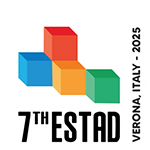Speaker
Description
Scrap usage in steelmaking is a common practice to improve the process sustainability, as it decreases the use of virgin raw materials and boosts the circularity of the sector (decreasing CO2 emissions and energy consumption). Nevertheless, the current trend in the EU scrap market points to a slight decrease in pre-consumer scrap (E2, E6, E8, turnings..) and an increase in the short- and long-term of the post-consumer scrap stream (E1, E3, HMS…), due to an increase in steel consumption in the last 30 years. Nowadays, the latter “low-quality” scrap streams are not suitable for most applications, thus limiting their use in steelmaking. To increase the steel scrap recycling capacity and energy efficiency, while keeping the EU competitive and secured in terms of raw materials imports, energy consumption and climate change impact, innovative technologies need to be implemented to clean the scrap before it reaches the steel furnaces. The CAESAR project gathers steelmakers, technology developers and research centers in a joint effort to validate, at full-size industrial scale, integrated scrap upgrading, sorting and characterization technologies. As a result, CAESAR enables to local usage of low-quality scrap streams in Europe, while keeping a high-quality product and generating valorization routes for all the non-ferrous fractions obtained, towards a zero waste steel sector.
At this stage of the project, several interesting results have already be obtained on key topics:
• Mapping of the EU scrap market and characterization of exported low-quality grades – in particular with respect to locally consumed ones
• Selecting, testing and integrating the best available technologies to upgrade, sort and characterize lower-quality scrap
• Exploring advanced scrap cleaning and on-line characterization technologies
